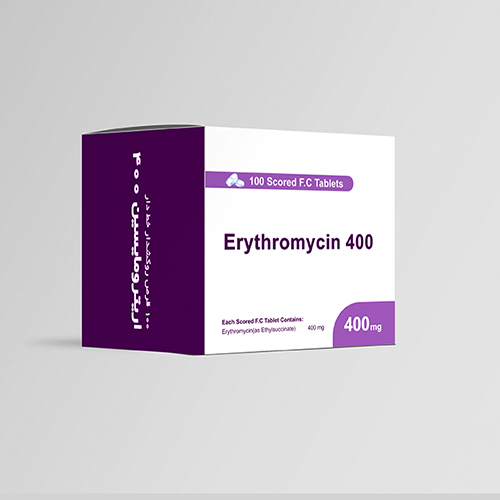 |
General Description |
This medicine is only prescribed for your current health condition. Avoid using it in similar cases or on the advice of others. Inform your doctor or pharmacist of the following issues before taking the medicine: – Any allergies – Pregnancy or breastfeeding – Using other medications – Having other diseases – Memory impairment or inability to read content |
 |
Side Effects |
Any medication can cause adverse effects alongside its beneficial therapeutic effects. Consult your physician or pharmacist if you noted any of the below side effects: Nausea, vomiting, diarrhea, stomach pain/cramping, and loss of appetite, signs of liver disease (such as persistent nausea/vomiting, yellowing eyes or skin, dark urine, severe stomach/abdominal pain), unusual tiredness, muscle weakness, slurred speech, blurred vision, drooping eyelids, hearing loss. |
 |
Direction of use |
Usual children dosage: In mild to moderate infections, the usual dosage of erythromycin ethylsuccinate for children is 30 to 50 mg/kg/day in equally divided doses every 6 hours. For more severe infections this dosage may be doubled. Usual adults’ dosage: 400 mg erythromycin ethylsuccinate every 6 hours is the usual dose. Dosage may be increased up to 4 g per day according to the severity of the infection. If twice-a-day dosage is desired, one-half of the total daily dose may be given every 12 hours. Doses may also be given three times daily by administering one-third of the total daily dose every 8 hours. – For treatment of urethritis due to C. trachomatis or U. urealyticum: adults 800 mg three times a day for 7 days. – For treatment of primary syphilis: Adults 48 to 64 g given in divided doses over a period of 10 to 15 days. – For intestinal amebiasis: Adults 400 mg four times daily for 10 to 14 days. – For use in pertussis: adults 40 to 50 mg/kg/day, given in divided doses for 5 to 14 days. – For treatment of Legionnaires’ Disease: adults 1.6 to 4 g daily in divided doses |
 |
Warnings |
Clostridium difficile associated diarrhea (CDAD) may occur with Erythromycin use and needs medical attention as infection can be fatal if overlooked. – Avoid use in patients with prolonged QT interval, ventricular arrhythmias (including torsade de pointes), uncorrected hypokalemia or hypomagnesemia, clinically significant bradycardia, or concurrent use of Class IA (eg, quinidine, procainamide) or Class III (eg, amiodarone, dofetilide, sotalol) antiarrhythmic agents. – Avoid concurrent use with strong CYP3A4 inhibitors; may increase the risk of sudden cardiac death. |
 |
Catalog |
Erythromycin 400 Catalog |








